AI tools for customer support are changing how organizations and customers interact, making service more efficient and effective. Companies using AI tools are seeing real gains. They’re not just speeding things up but offering more personal, flexible service without stretching their teams thin.
These developments are producing real, measurable results. According to Globe News Wire, it’s set to jump from $12.06 billion in 2024 to a massive $47.82 billion by 2030. This rise reflects a clear shift. Businesses now use AI to offer better customer experiences, drive productivity, and ensure long-term growth.
AI chatbots and virtual assistants tackle routine questions, freeing human agents to deal with complex issues that demand analytical thinking and empathy.
Automating this procedure improves reaction times and lowers expenses. It also makes it possible for organizations to support customers around the clock, without being limited by time zones or staffing constraints.
AI customer service tools use machine learning techniques to study customer behavior or data and suggest appropriate actions and answers. By integrating IT automation software, businesses can further optimize ticketing and workflow processes, enhancing efficiency while improving the consumer experience and loyalty through personalized support.
According to Statista, 96% of surveyed customers agreed that more businesses should use chatbots instead of traditional customer support services.
When a company chooses to implement AI for customer service, it experiences increased effectiveness and coverage, higher levels of customization, and predictive support — all of which are driven by the right AI Agent for Customer Service.
Best Features to Look for in AI Customer Service Software
AI tools for customer support help increase satisfaction and efficiency while enhancing personalization. Selecting artificial intelligence customer service tools requires careful consideration of traits that fit your company’s objectives.
Important traits to look for are:
1. Virtual Assistants and AI-Powered Chatbots
These technologies answer frequently asked queries, execute transactions, and escalate difficult situations to human agents in real time. Working round-the-clock, they offer ongoing support with swift replies as a substitute for human agents.
According to Statista, 82% of consumers in 2024 said they would use a chatbot instead of waiting for a customer service representative to answer their call.
2. Omnichannel Integration
Effective artificial intelligence customer service software should seamlessly integrate across several communication channels, including chat, email, social media, and voice, for consistent support.
3. Self-Serving Solutions
Enabled by AI, self-service solutions such as interactive FAQs and a more advanced knowledge base will resolve customer queries, relieving the demand on support personnel.
4. Automatic Ticketing Systems
Automating ticketing includes classifying, prioritizing, and routing customer inquiries by level of urgency or complexity to ensure timely resolution and efficiently run processes to resolve those issues.
5. Automotive Workflows
AI-powered workflow automation helps streamline internal procedures, including ticket assignment, customer record modifications, and follow-up correspondence, increasing operational efficiency.
6. Real-Time Analysis and Documentation
AI systems’ real-time data analysis and reporting enable data-driven decision-making and plan optimization. This provides actionable insights into consumer interactions and agent performance. For example, businesses can use AI budgeting tools alongside these analytics to optimize support spend, forecast resource requirements, and maintain profitability while scaling operations.
7. Speech Synthesis and Recognition
Voice interaction has enabled such advanced AI systems to enable users to interact with computer systems in a natural way, opening up information or services to them.
The majority of contact centers, for example, now use AI-driven voice bots to check bank account balances or schedule appointments, freeing human agents to handle more sensitive or complex issues.
8. Sentiment Analysis
According to PwC, 59% of customers feel that businesses have forgotten the human touch in customer experience.
AI gives businesses the tools to monitor consumer attitudes during interactions, providing insight into emotions and level of satisfaction. Businesses can address issues more quickly and handle complaints before they escalate into bigger ones by identifying indicators of discontent or unhappiness.
9. Predictive Analytics for Proactive Support
Apart from identifying consumer requirements and issues, companies can use predictive analytics to anticipate and prevent crises before they arise. By doing so, customers experience a cost-efficient and timely solution for their business and earn their trust, which leads to loyalty.
10. Security and Compliance Features
According to CDP, only about 52% of customers trust a company. AI customer service software must have strong security and comply with current regulations to secure client data and preserve confidence.
In BFSI and healthcare, where protecting sensitive data is crucial to reputation and client retention, this is particularly important.
Top 15 AI Tools for Customer Support in 2026
Let us take a look at the top AI tools for customer support in 2026. To have a quick overview, here’s a comparison table:
| Tool Name | AI Chatbots | Omnichannel Support | Agent Assist | Workflow Automation | Integration Options | Analytics and Reporting | Best For |
| Kapture CX | Yes | Yes | Yes | Yes | Extensive | Yes | Customer Support Teams |
| Zendesk | Yes | Yes | Yes | Yes | Extensive | Yes | All-size Businesses |
| Intercom | Yes | Yes | Yes | Yes | Extensive | Yes | Sales + Support |
| Tidio | Yes | Yes | Limited | Limited | Moderate | Yes | SMBs, Ecommerce |
| Freshdesk | Yes | Yes | Yes | Yes | Extensive | Yes | Support Teams |
| LivePerson | Yes | Yes | Yes | Yes | Extensive | Yes | Enterprise Messaging |
| Ada | Yes | Yes | Limited | Yes | Good | Yes | Automated Self-Service |
| Drift | Yes | Yes | No | Limited | Good | Yes | Lead Gen + Sales |
| NICE CXone | Yes | Yes | Yes | Yes | Extensive | Yes | Enterprise Contact Centers |
| Verint Systems | Yes | Yes | Yes | Yes | Extensive | Yes | Enterprise CX Teams |
| Pegasystems | Yes | Yes | Yes | Yes | Extensive | Yes | Large Enterprises |
| Net2Phone | Yes | Yes | Yes | Yes | Good | Yes | Unified Comms |
| Forethought | Yes | Yes | Yes | Yes | Good | Yes | Support Automation |
| Aisera | Yes | Yes | Yes | Yes | Extensive | Yes | IT & Customer Support |
| Interactions LLC | Yes | Yes | Yes | Yes | Extensive | Yes | Voice-Heavy CX |
Now, let’s go into each tool with more detail:
1. Kapture CX
Kapture CX is built to meet the changing expectations of today’s customers, offering an enterprise-level, AI-powered platform that turns good service into truly outstanding experiences.
Every part of Kapture CX—from its team to its technology—has been developed with a clear focus on the customer. It delivers industry-specific solutions by combining AI, smart workflows, and automation, helping businesses offer faster, more personalized support that leaves a lasting impact.
Best Features:
- Omnichannel Ticketing Platform: Support teams gain better visibility and faster response times when emails, chats, calls, and social media messages are organized in a single system.
- AI-Powered Self-Service: Instead of waiting in queues, customers can solve routine issues on their own through chatbots, voice bots, or the knowledge base. This ensures that agents concentrate on difficult tasks.
- Agent Assistance Tools: Assistance tools offer smart suggestions, dynamic ticket routing, and real-time prompts that help agents respond faster and tailor their service to each customer’s needs.
- Conversation Intelligence and Auto QA: AI automatically reviews conversations, flags quality issues, and highlights emerging trends to improve support efficiency. Get automatic meeting transcription for every support call instant transcripts, speaker labels, and summaries ready for QA.
- Feedback and Insights Management: Feedback is gathered at every stage—through surveys, follow-ups, and service interactions. Organizations can track satisfaction levels closely and base choices on actual consumer insight.
Pros:
- The simple user interface allows people to properly use and navigate the site.
- Kapture CX is practical for businesses of all sizes since it is designed to adapt with growth.
Cons:
- While fundamental features are intuitive, learning advanced functionalities might require extra guidance.
2. Zendesk
Zendesk has grown into a robust support platform. It helps teams manage conversations, resolve issues quicker, and make the overall support experience smoother.
The built-in AI automates repetitive tasks, recognizes useful trends in support data, and keeps everything connected across chat, email, and more. It saves time and keeps your team focused on the important work.
Best Features:
- Smart Triage: Zendesk’s AI looks at a customer’s tone, intent, and language to automatically organize and prioritize incoming tickets.
- AI Chatbots: AI chatbots respond instantly, so agents don’t get bogged down in routine tasks.
- Generative AI Support for Agents: Zendesk also helps agents behind the scenes by summarizing chats, drafting replies, and suggesting what to say next.
- Macro Suggestions: The system suggests new macros by tracking ticket trends.
Pros:
- Zendesk offers many tools to run and enhance customer support activities.
- It increases its adaptability by interacting with many apps and systems.
Cons:
- The initial configuration of Zendesk may require technical expertise.
3. Intercom
Intercom is a platform that facilitates various forms of artificial intelligence customer messaging and personalized customer support. It is increasingly used by businesses interested in bringing their clients into real-time communication environments.
It provides proactive support and necessary insight into customer behavior and automation of responses to repetitive customer inquiries.
Best Features:
- Smart Chatbots: Take care of common questions so your team can focus on what needs a human.
- Automated Messages: Send notifications triggered by user activity on your site.
- Segmentation Tools: Group users based on behavior, location, or plan type.
- Self-Serve Support: Let customers find answers through a help center without waiting.
Pros:
- Intercom helps you find what customers need before they ask.
- It gives you a clearer picture of how your team’s doing through data and insights from real conversations.
Cons:
- Intercom’s advanced features and AI capabilities can be costly for smaller businesses.
4. Tidio
The Tidio customer support system specializes in small and growing enterprises. It provides live chat, AI chatbots, and multichannel tools to help you communicate with your customers faster.
Designed for automated time-saving and customer engagement maintenance, the tool offers end-user simplicity. It is famous mostly for e-commerce brands because of its plugins for platforms such as Shopify, WordPress, and Wix.
Best Features:
- Live Chat Integration: Tidio effortlessly switches from chatbot to live human service as needed, assuring client satisfaction.
- Multichannel Inbox: Bring chats and messages from email, your site, Instagram, Facebook Messenger, and WhatsApp.
- Live Visitor Tracking: See who’s browsing your site and trigger automated messages.
- Simple Integrations: Integrations with tools like Shopify, BigCommerce, and Google Analytics make setup smooth.
Pros:
- Tidio offers a quick setup with no coding required, making it easy for first-time users.
- Users can design conversation flows visually, customize bot triggers, and create dynamic responses.
Cons:
- Tidio’s AI capabilities may not support complex NLP or large-scale customer behavior predictions compared to enterprise-grade platforms.
5. Freshdesk
Freshdesk offers a robust cloud-based customer service platform and enables easy pioneering collaboration between the customer service process and customer practices. It is an all-in-one platform for all ranges of companies—small, medium, and large. It comprises many devices and services necessary to deal with customer queries properly.
Freshdesk uses AI, with its Freddy AI engine, to automate everyday operations, provide insightful data, and enable seamless collaboration across numerous media.
Best Features:
- Freddy AI: Freddy AI helps agents in real time with quick conversation summaries, helpful reply suggestions, and tone tweaks.
- Ticketing System: Turn messages from email, chat, phone, and social media into one easy-to-manage queue.
- Self-Service Options: Build a full help center so customers can find answers independently.
- Multi-Channel Support: It pulls all your support conversations into one place—no matter where they started.
Pros:
- The intuitive design of Freshdesk permits easy navigation and efficient usability for support teams.
- The platform serves companies of any size.
Cons:
- Some users may feel that, as compared to other platforms, customization options are limited.
6. LivePerson
Conversational commerce and AI solutions comprise the niche that LivePerson specializes in. Businesses can use this platform to communicate with customers through AI messaging and voice chatbots on various channels, including mobile and social media.
LivePerson uses AI to provide scalable personalization, analyze client intent, and automate conversations.
Best Features:
- Conversational Cloud: Build and manage AI-powered chats that feel natural.
- AI Chatbots: Handle routine inquiries efficiently, allowing your team to focus on the trickier tasks.
- Intent Recognition: The system determines what customers are asking so that responses hit the mark.
- Proactive Messaging: Start helpful conversations based on what users do in real time.
Pros:
- LivePerson makes real-time support feel personal.
- It takes care of the repetitive tasks to reduce pressure on your support team.
Cons:
- Setting up and customizing LivePerson’s AI solutions may require technical expertise and time.
7. Ada
Ada is an AI customer service software that allows businesses to provide tailored help. It reduces dependence on human agents for regular inquiries by automating interactions with AI chatbots.
Ada’s AI agent can handle up to 70% of customer service requests, handling a workload equivalent to multiple agents while considerably lowering operational costs.
Best Features:
- Voice Automation: Its AI capabilities automate both simple and sophisticated voice inquiries.
- Email Automation: Ada automates email communications by analyzing customer inquiries and providing relevant responses.
- Integrations: Ada interfaces smoothly with various company systems, including CRM platforms like Salesforce.
- Analytics and Reporting: The platform includes complete analytics capabilities that provide insights into customer interactions and agent performance.
Pros:
- Ada’s AI assistant can directly handle a large share of customer service questions.
- The platform supports conversational AI over multiple channels.
Cons:
- The investment for the features and capabilities offered by Ada could be higher.
8. Drift
Drift is a conversational AI platform that improves customer engagement and support through real-time conversations. AI chatbots and live chat together increase user interaction and boost company output.
Usually aimed at the sales and marketing community, the software qualifies leads, plans meetings, and handles support tickets in a 24/7 setting.
Best Features:
- AI-Powered Chatbots: Drift’s chatbots interact with website visitors in real time, qualifying leads, scheduling sales calls, and responding instantly to frequent inquiries.
- Live Chat Integration: The platform enables a smooth shift from chatbot to human agent for complicated issues.
- Conversational Marketing: Drift allows organizations to lead potential customers through the sales funnel and increase conversion rates.
- Analytics Dashboard: The platform tracks chat performance, customer engagement, and agent efficiency.
Pros:
- Drift, a reliable platform, helps qualify leads for outreach and streamlines meeting scheduling.
- The software provides more insights into customer interactions with the company’s agents.
Cons:
- The extensive feature set may require time and training to utilize fully.
9. NICE CXone
NICE CXone is a comprehensive cloud-based customer experience platform that uses AI to improve customer service operations. As an AI customer support platform, it has built-in omnichannel routing, analytics, labor optimization, and many AI-powered automation features.
CXone is built to enhance service performance through better routing and automation. Thus, it is creating customer-oriented tailored communication with rich service application efficiency and better customer satisfaction.
Best Features:
- AI-Powered Analytics: The platform uses AI to analyze customer interactions, offering actionable insights.
- Workforce Optimization: CXone provides solutions for managing and optimizing workforce performance.
- Self-Service Capabilities: The platform enables the development of AI-powered self-service solutions, such as chatbots and interactive voice response systems.
- Integration Flexibility: CXone connects with various CRM systems and corporate applications.
Pros:
- This is one of the few cloud-based solutions for customer support that combines numerous functionalities regarding customer service.
- It scales with the growing needs of organizations without compromising performance.
Cons:
- Excessive options for features and customization may mean a complex implementation process.
10. Verint Systems
Verint Systems helps businesses make sense of their customer conversations. Calls, chats, emails — it brings everything together in one place. Using AI, advanced analytics, and automation, it picks up patterns that aren’t always obvious at first.
For example, Verint’s Speech Analytics reviews call recordings to spot customer sentiment, common complaints, and how agents are handling calls. The platform helps businesses act on data to improve service and workflows.
Best Features:
- AI-Powered Analytics: Verint’s platform uses AI to analyze customer interactions to help businesses understand customer behavior and predict trends.
- Automated Workflows: The platform automates mundane operations and processes.
- Omnichannel Engagement: Verint enables consumer interactions across numerous channels.
- Workforce Optimization: The platform provides workforce management features such as scheduling, performance analytics, and quality monitoring.
Pros:
- In-depth customer interaction insights through AI-based analytic tools.
- Operational efficiency improvement and cost reduction through automated workflow and workforce optimization tools.
Cons:
- Setup and customization can be complex for smaller teams due to integration challenges and limited technical documentation.
11. Pegasystems
Pegasystems offers a suite of AI-powered tools for customer engagement and automation. Pega Platform links customer interfaces to back-end process automation.
Pega increases general service efficiency and satisfaction by integrating artificial intelligence into its customer service software, improving decision-making, automating mundane tasks, and offering customized client interactions.
Best Features:
- AI-Driven Decisioning: Pega’s platform analyzes real-time customer data and interactions.
- Low-Code Development: The platform provides a low-code environment that enables enterprises to develop and deploy applications quickly.
- Robotic Process Automation (RPA): Pega uses RPA to automate repetitive operations.
- Omnichannel Engagement: The platform allows customers to interact over several channels.
Pros:
- Pega’s artificial intelligence lets companies provide highly customized consumer experiences.
- RPA’s automation of repetitive activities lowers agent error rates and effort.
Cons:
- It may have a complex implementation process due to lengthy setup times, integration requirements, and a steep technical learning curve.
12. Net2Phone
A unified communications company, Net2Phone offers several audio, video, chat, and text resources that allow companies to interact more efficiently. With the rise of AI video technology, Net2Phone is aligning its capabilities to deliver more dynamic and intelligent real-time communication experiences.
Its product line comprises UNITE, uContact, Huddle, and Net2Phone AI, all designed to handle different elements of customer engagement and support.
Best Features:
- Net2Phone AI: This add-on service optimizes agent and client interactions by offering sentiment analysis, automatic call transcription, auto-generated follow-up emails, and more.
- UNITE: It is a Unified Communications as a Service (UCaaS) platform that offers enterprises audio, video, chat, text, and integrations.
- uContact: A Contact Center as a Service (CCaaS) platform that provides chatbots, workflow management, and development tools.
- Huddle: Huddle is a high-definition video conferencing software with features including screen sharing, chat messaging, and a raise hand option.
Pros:
- Net2Phone offers many different communication solutions.
- Features like call analytics and sentiment analysis help companies obtain insightful information.
Cons:
- Especially for teams without technical help, the various capabilities and tools may be initially daunting.
13. Forethought
Forethought is AI-powered customer service automation software that boosts support team productivity and resolution speed. It uses powerful machine learning and natural language processing to understand and answer client requests effectively.
By automating routine tasks and providing cognitive support to human agents, the platform reduces operating costs, increases resolution rates, and shortens response times.
Best Features:
- AI-Powered Triage: Forethought intelligently categorizes and prioritizes incoming customer inquiries.
- Automated Responses: The platform uses AI to provide correct and contextually appropriate responses to frequent client questions.
- Agent Assist: Forethought gives agents real-time suggestions and pertinent information during client encounters.
- Integration: The platform is compatible with leading customer support tools and CRM systems.
Pros:
- Forethought significantly reduces response times and increases the overall efficiency of support operations.
- Faster resolutions and accurate responses provide a better customer experience.
Cons:
- Forethought’s AI performs optimally with a substantial amount of historical ticket data.
14. Aisera
Aisera is a customer service system powered by advanced AI technologies. It streamlines operational effectiveness and customer experiences through automated support interactions and processes.
Utilizing modern technologies such as conversational AI, natural language processing (NLP), and machine learning, Aisera enables businesses to provide proactive and tailored help across many channels.
Best Features:
- Conversational AI Chatbots: Aisera’s chatbots have natural, human-like discussions with clients.
- AI-Powered Search: The platform uses Retrieval Augmented Generation (RAG) to search through numerous customer data sources in real time.
- Rich Integrations: Aisera interacts smoothly with over 500 enterprise apps, including CRM systems such as Salesforce and Zendesk.
- Automated Workflows: The platform automates repetitive operations and processes.
Pros:
- Aisera automates a significant portion of customer support tasks.
- Aisera can scale with business growth without compromising performance.
Cons:
- Aisera’s platform can be complex.
15. Interactions LLC
Interactions LLC focuses on creating Intelligent Virtual Assistants (IVAs) to improve customer service experiences. They administer conversational AI designed for human-like conversations to provide the most natural and productive experience in industries ranging from telephony, finance, and retail to health care.
Their IVAs are intended to manage difficult client inquiries, lower operating expenses, and increase customer satisfaction through seamless, human-like conversations.
Best Features:
- Intelligent Virtual Assistants (IVAs): IVAs combine conversational AI with real-time human assistance.
- Human-Assisted Understanding (HAU): This patented technology allows IVAs to efficiently manage complicated or ambiguous interactions.
- Omnichannel Support: The platform enables consumer interactions across several channels.
- Task Orchestration: Interactions provides an agent-assist solution that simplifies processes, such as automating ID validation and routing customer requests in real time.
Pros:
- Interactions’ IVAs achieve a high percentage of task completion without escalation.
- It is suitable for large contact centers handling millions of interactions monthly.
Cons:
- Implementation may take longer than plug-and-play chatbot solutions.
How to Choose the Right AI Customer Service Tool for Your Business
According to McKinsey, more than 78% of businesses use AI to some level, so the right AI tools for customer support are critical for staying competitive and increasing operational efficiency.
To make an informed selection, examine the following elements.
- Define Objectives: Clearly define your goals for AI integration, such as lowering response times, automating repetitive requests, or providing 24/7 assistance.
- Assess Customer Interaction Complexity: Understand the complexity and volume of your customer queries. Chatbots answer straightforward inquiries; complicated ones need sophisticated AI with natural language processing.
- Integration Capabilities: Make sure the AI tool can function easily with your existing systems, such as CRM software, help desks, and communication platforms, to maintain a consistent workflow.
- Customization and Scalability: Set systems that can adapt to your business requirements and scale with business growth. Such flexibility ensures that the tool will continue to work through time.
- User Experience: Prioritize tools with simple interfaces for customers and support representatives. A user-friendly system promotes adoption while minimizing training needs.
Future Trends in AI for Customer Support
The AI landscape in customer support is rapidly evolving, with several significant trends emerging.
- Enhanced Personalization: AI provides personalized consumer experiences, such as tailored chatbot flows and personalized recommendations, by evaluating individual preferences and behaviors, resulting in more customized interactions. This aspect is essential, as, according to McKinsey, 71% of customers expect improved personalized interactions.
- Automation of Issue Resolution: Advances in AI allow for the automation of complicated issue resolution procedures, lowering the need for human interaction and decreasing response times. According to Infomineo, companies using AI reported a 37% reduction in first response times compared to those without automation.
- Proactive Customer Engagement: AI solutions are being developed to anticipate customer demands and address issues before they happen, increasing customer satisfaction and loyalty.
- Multilingual Help: AI-powered language processing capabilities are improving, helping companies support global audiences without adding human translators. To find the AI tool that best fits your needs, explore Pick AI, oneof the best AI tools directories where experts review and categorize the best AI tools. You can also receive personalized recommendations from AI experts.
Conclusion
AI tools for customer support enhance efficiency, improve customer experiences, and reduce operational costs. As organizations look ahead, leveraging effective LLM prompts can be a key differentiator — by guiding language models more precisely, companies can unlock smarter, more reliable AI-driven conversations. To explore best practices on how to build prompts that deliver, check out our full guide.
If you’re looking for a scalable, AI-powered customer support platform with omnichannel ticketing, intelligent automation, and deep integration possibilities, Kapture CX is built to meet enterprise needs.
Book a personalized demo today to learn how Kapture CX can transform your customer support.
FAQs
AI customer service is the application of technologies such as chatbots and virtual assistants to automate and enhance business conversations with customers.
AI enhances customer service by automating routine tasks, responding to frequently asked questions, personalizing conversations, and enhancing human representatives’ ability to deal with intricate issues.
AI customer service technologies can help companies of all sizes and sectors. However, applicability is determined by elements such as the volume of customer interactions, the complexity of inquiries, and the organization’s willingness to implement AI technology.
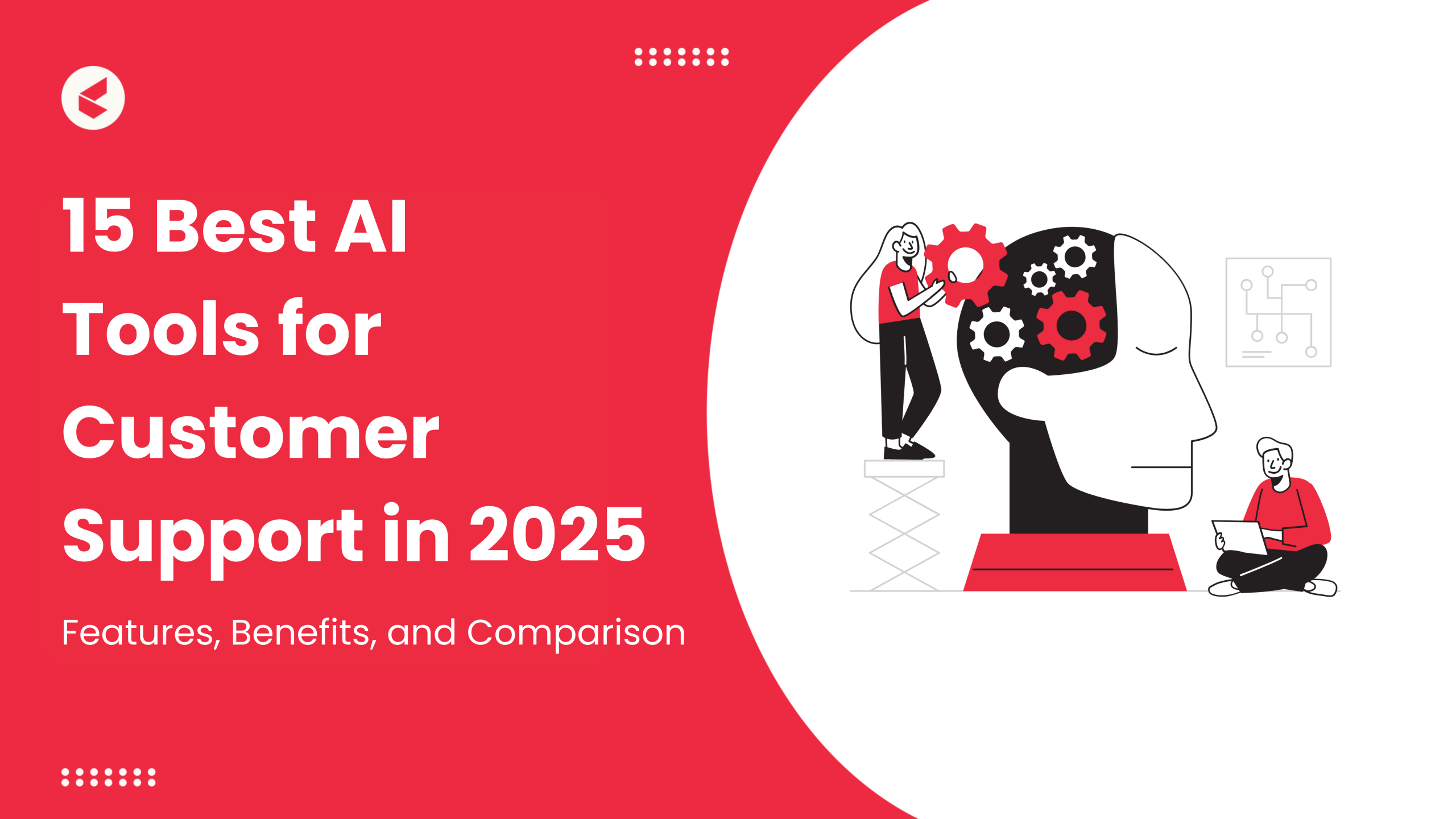
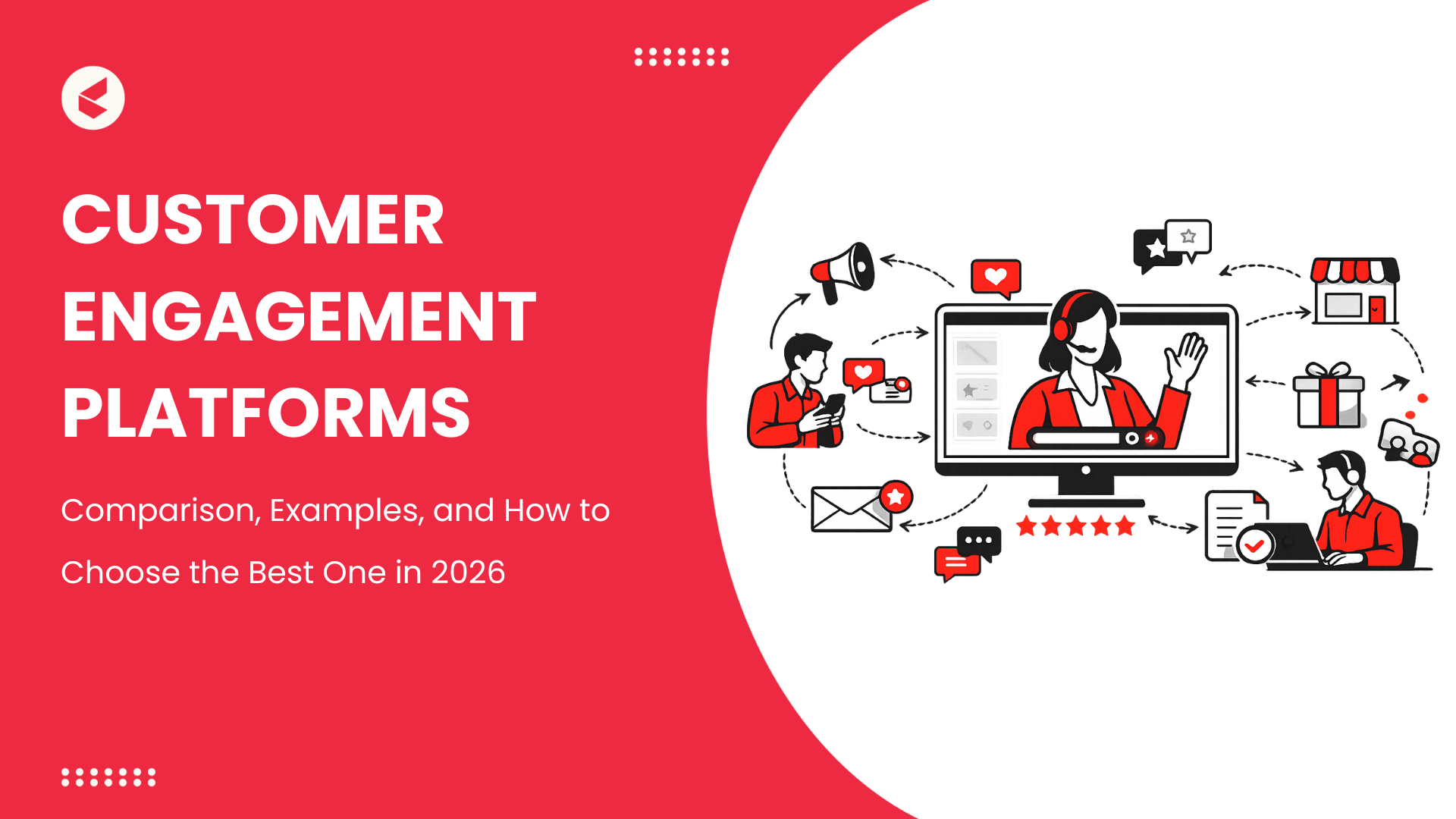
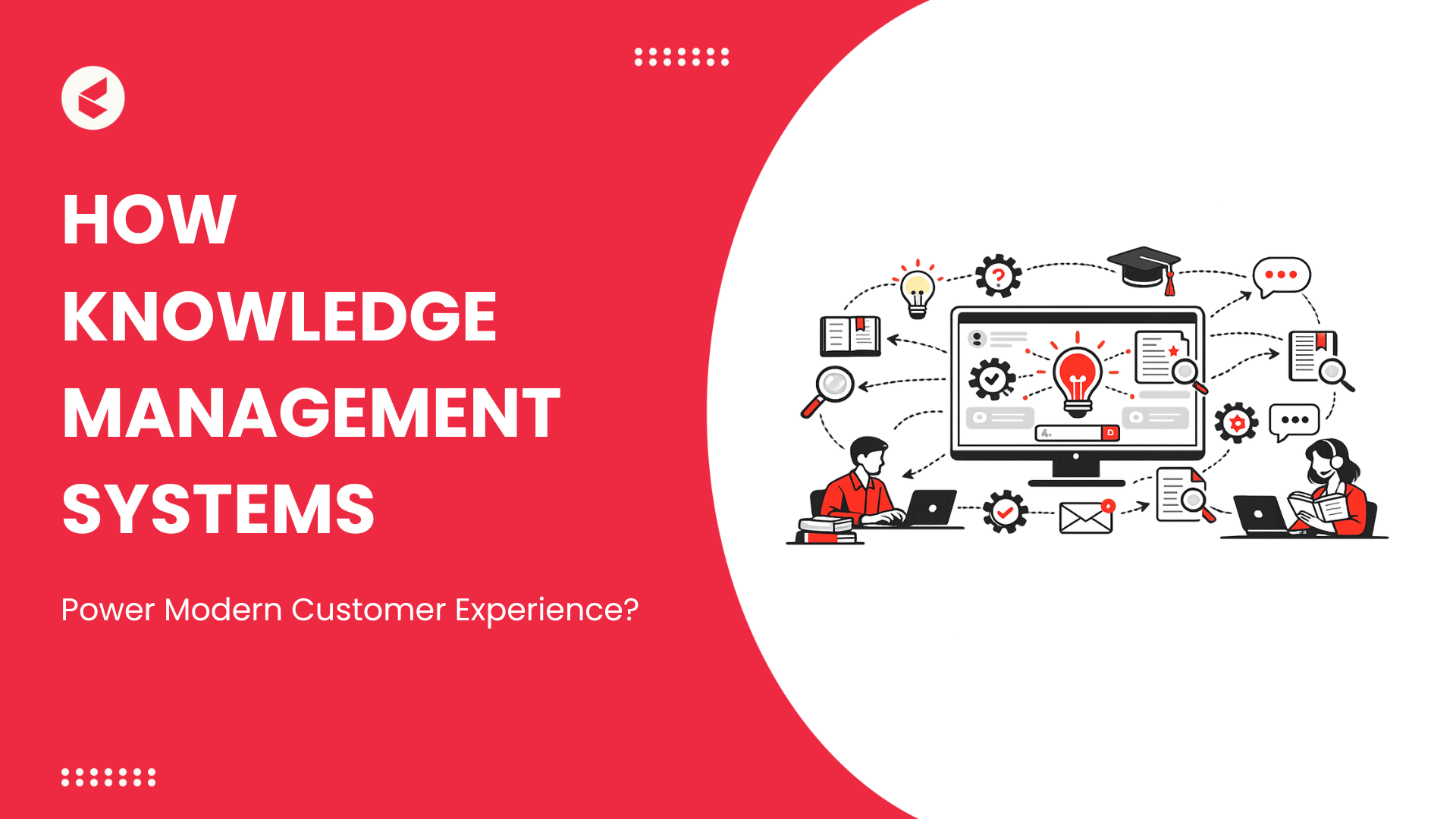
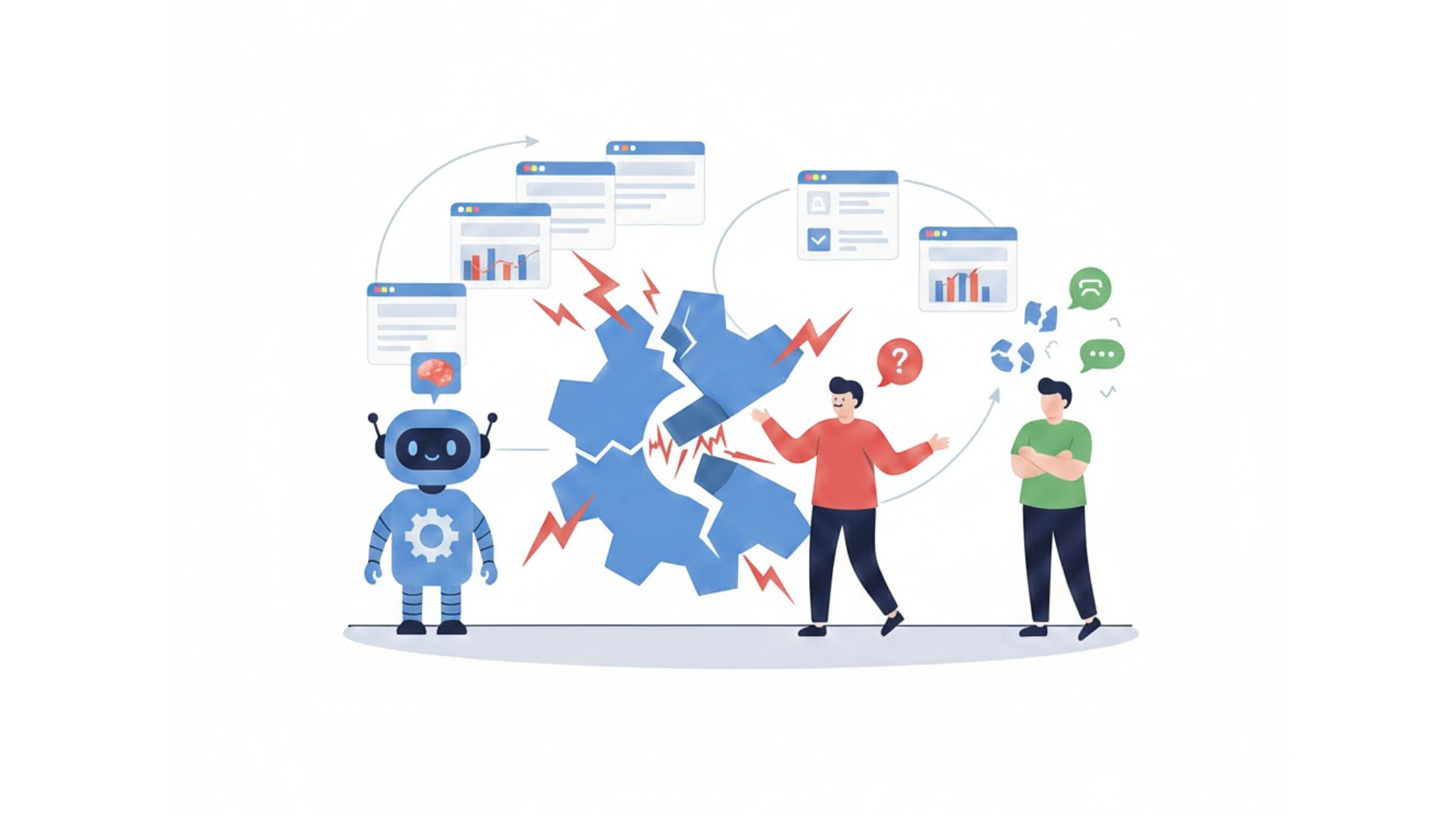
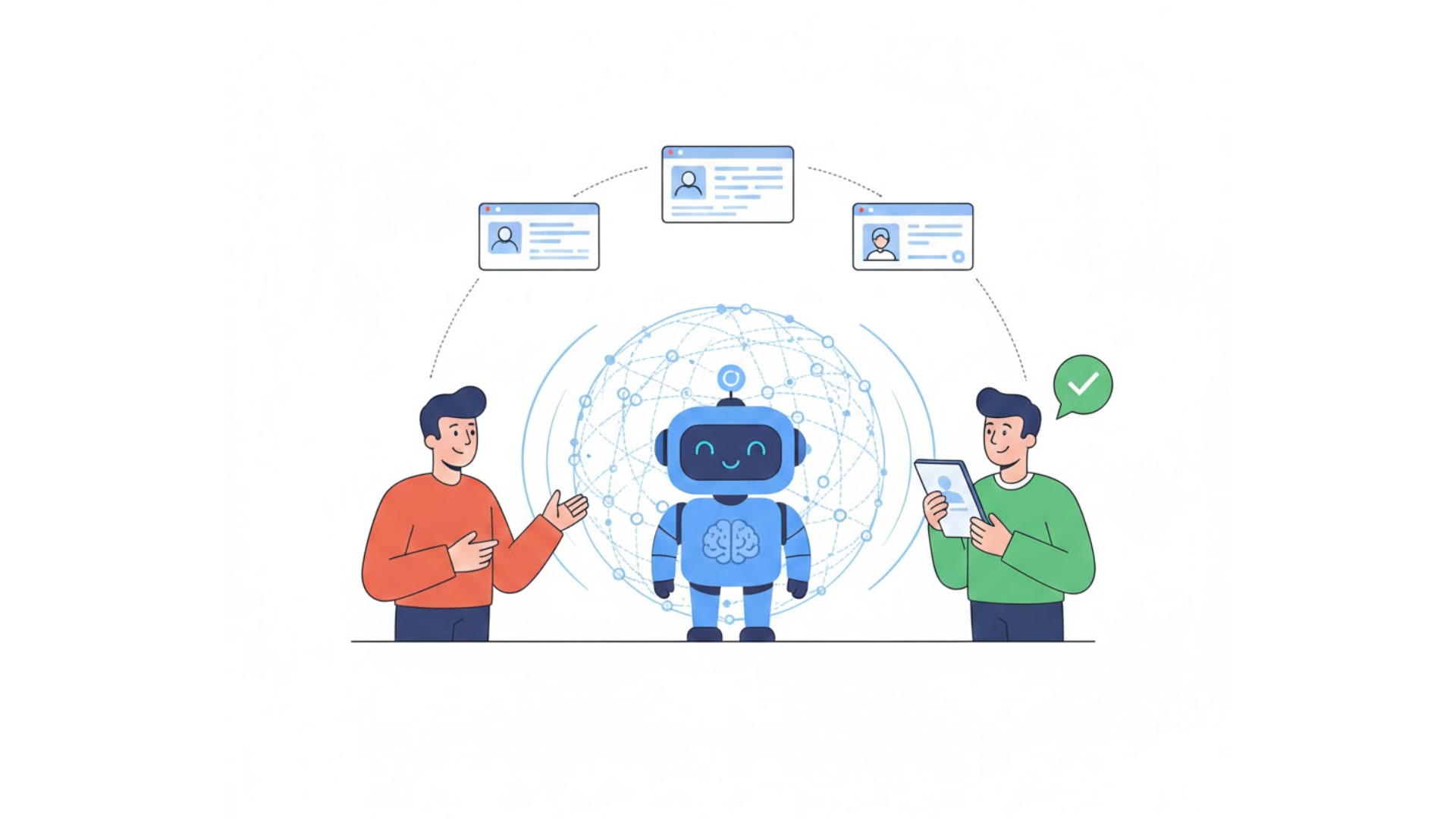











One thought on “15 Best AI Tools for Customer Support in 2026: Features, Benefits, and Comparison”
Comments are closed.